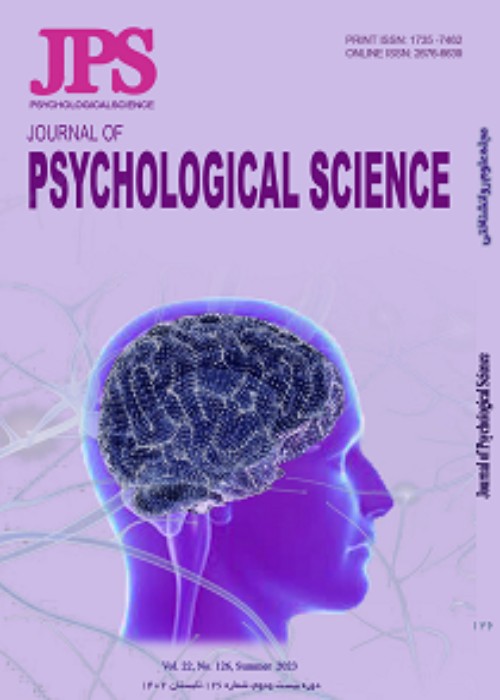The effectiveness of transcranial direct current stimulation on the self-conscious affections of shame and guilt and the disgust sensitivity of adolescents with obsessive- compulsive disorder: A single case study
Transcranial direct electrical stimulation is a non-invasive neuromodulation stimulation technique with good tolerance and no side effects in the treatment and improvement of obsessive-compulsive symptoms, which effectively modulates cortical excitability. However, there is still no strong and sufficient evidence for the use of this treatment method in adolescents with obsessibe- compulsive disorder.
The present study was aimed at the effectiveness of transcranial direct current stimulation on the Self-conscious Affections of Shame and Guilt and the disgust sensitivity of Adolescents with obsessibe- compulsive disorder.
In this research, the experimental method was used as a single case method with a continuous measurement design and different subjects. The statistical population of the present study included all teenagers suffering from obsessive-compulsive disorder who were referred to Yas Counseling Center in Tabriz in 1400, and 4 of them were selected by purposive sampling and based on the protocol of Green et al (2020) they underwent ten sessions of transcranial direct current stimulation twice in a week for 20 minutes each time. Subjects in the baseline stages, the second, fourth, sixth, eighth, tenth, and one-month follow-up sessions with disgust sensitivity scale (Heidet, McCauley, and Rosin, 1994), guilt questionnaire (Kugler and Fons, 1992) and shame questionnaire (Cohen, Wolff, Penter and Insko, 2011) were evaluated. For data analysis, a visual drawing method, reliable change index, percentage of recovery, and percentage of non-overlapping data were used.
The results showed that transcranial direct electrical stimulation has a significant effect on reducing feelings of shame and guilt and disgust sensitivity in adolescents with obsessive-compulsive disorder (RCI≥1/96), and the therapeutic effects are maintained in the follow-up phase.
Adolescents with obsessive-compulsive disorder who were treated with transcranial direct electrical stimulation experienced less shame and guilt and less disgust sensitivity. It is recommended to use this method in the treatment of adolescents with obsessive-compulsive disorder.
- حق عضویت دریافتی صرف حمایت از نشریات عضو و نگهداری، تکمیل و توسعه مگیران میشود.
- پرداخت حق اشتراک و دانلود مقالات اجازه بازنشر آن در سایر رسانههای چاپی و دیجیتال را به کاربر نمیدهد.


